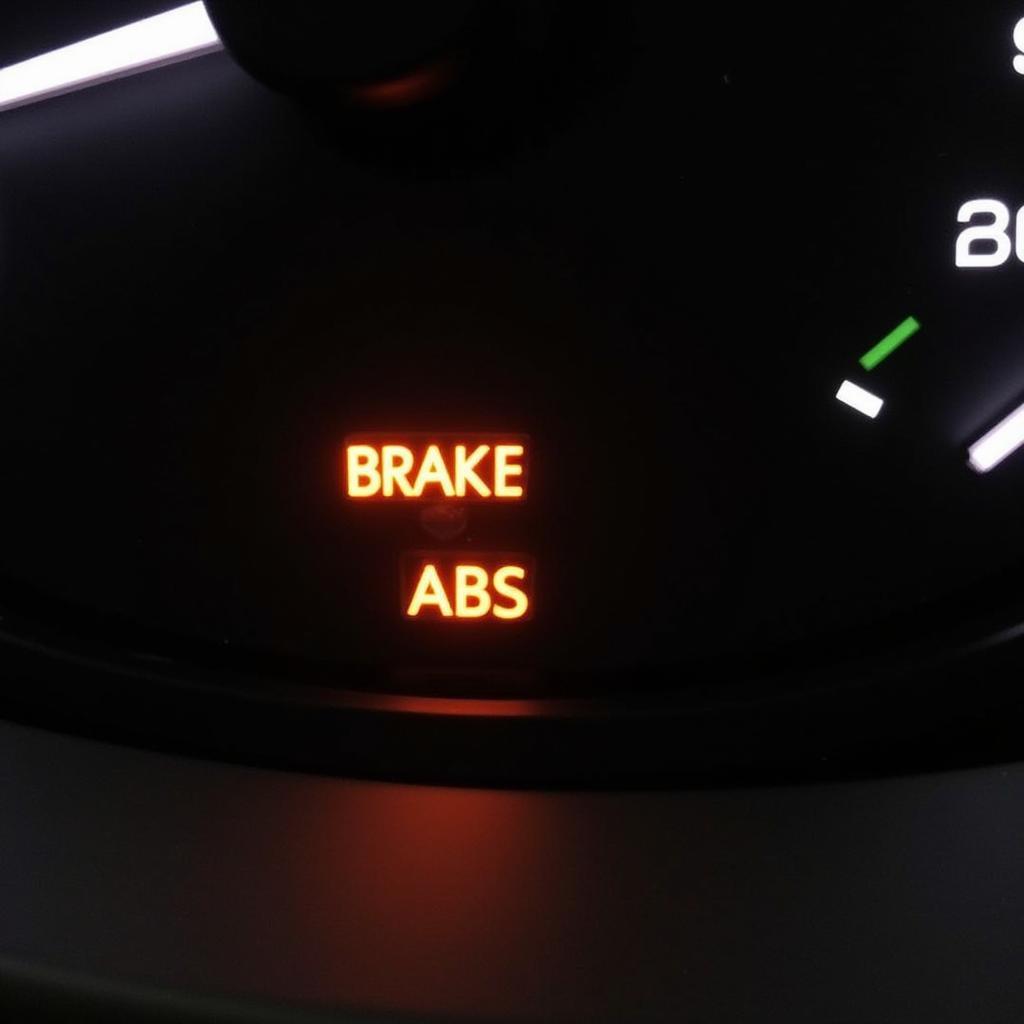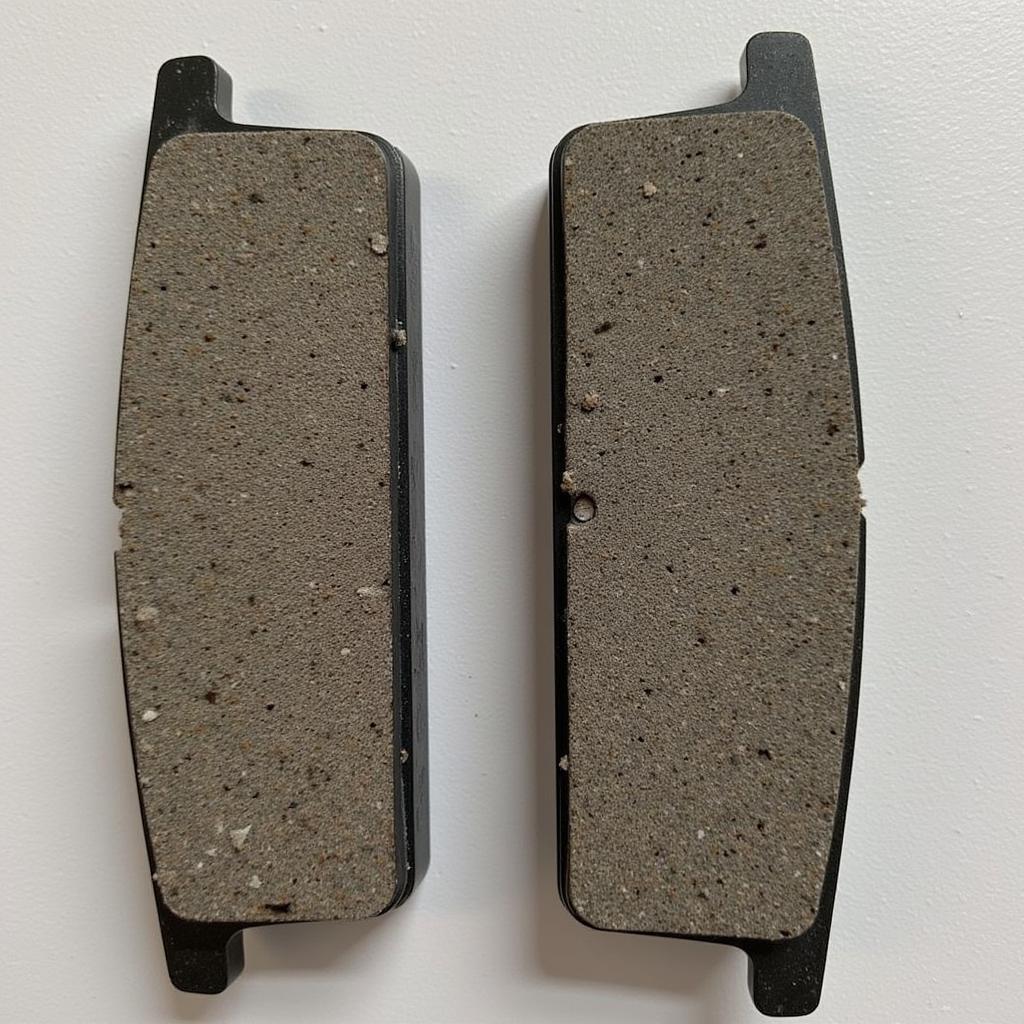If you’re experiencing brake warning lights on your 2002 Ford Focus dashboard, you’re not alone. This is a common issue that can be caused by a variety of factors. This article will guide you through diagnosing and potentially resolving this issue, empowering you with the knowledge to address these common warning signs.
Let’s start by understanding what each light indicates:
- Red Brake Warning Light: This light typically signals one of two major issues: either your parking brake is engaged, or there’s a problem with your brake fluid system.
- Anti-lock Brake System (ABS) Light: This light specifically relates to your ABS, a safety feature that prevents wheel lockup during braking.
 2002 Ford Focus Brake Warning Lights
2002 Ford Focus Brake Warning Lights
Common Causes of Brake Warning Lights in a 2002 Ford Focus
Here’s a breakdown of the most frequent culprits behind those illuminated brake warning lights:
- Low Brake Fluid: The most common reason for the red brake warning light is low brake fluid. This could be due to a leak in the system or simply worn-out brake pads.
- Worn Brake Pads: Your brake pads are designed to wear down over time. When they get too thin, it can trigger the brake warning light.
- Faulty Brake Light Switch: The brake light switch is responsible for activating your brake lights when you press the pedal. If it malfunctions, it can also illuminate the brake warning light.
- ABS Sensor Issue: A malfunctioning ABS sensor can cause the ABS light to come on. This could be due to a damaged sensor, wiring problems, or a build-up of debris on the sensor.
- ABS Module Problem: In some cases, the ABS module itself may be faulty, leading to an illuminated ABS warning light.
Troubleshooting Brake Warning Lights
Follow these steps to diagnose the cause of your brake warning lights:
- Check Your Parking Brake: Make sure your parking brake is fully disengaged. It sounds obvious, but sometimes the simplest solution is the right one.
- Inspect Brake Fluid Level: Park on a level surface and locate your brake fluid reservoir under the hood. Check the fluid level. If it’s low, you likely have a leak or need new brake pads.
- Inspect Brake Pads: If you’re comfortable with basic car maintenance, take a look at your brake pads. If they appear thin (less than ¼ inch of friction material), it’s time for a replacement.
 Worn Brake Pads on a Ford Focus
Worn Brake Pads on a Ford Focus - Listen for Unusual Noises: When applying the brakes, listen for any unusual noises like grinding or squealing. This is another sign that your brake pads might be worn out.
“Ignoring brake warning lights can be dangerous,” advises Mark Stevenson, a seasoned automotive engineer specializing in brake systems. “Addressing the issue promptly ensures your safety and prevents potentially costlier repairs down the line.”
When to Seek Professional Help
While some brake-related issues can be addressed with DIY solutions, it’s crucial to recognize when professional help is necessary. If you’re uncomfortable performing any of the above steps, or if you suspect a more serious issue like an ABS fault or brake fluid leak, it’s best to take your Ford Focus to a qualified mechanic.
{width=1024 height=1024}Remote Diagnostics and Software Solutions
Advancements in automotive technology now offer remote diagnostic and software solutions for certain car problems. Using specialized equipment, mechanics can remotely access your vehicle’s computer system to diagnose problems and, in some cases, even upload software updates to address issues. This can be a convenient option for minor software glitches that might be triggering warning lights.
Conclusion
Ignoring brake warning lights in your 2002 Ford Focus can jeopardize your safety and lead to more expensive repairs down the road. By understanding the potential causes and taking appropriate action, you can keep your car running safely and smoothly. Remember, when in doubt, consulting a qualified mechanic is always the safest course of action.

